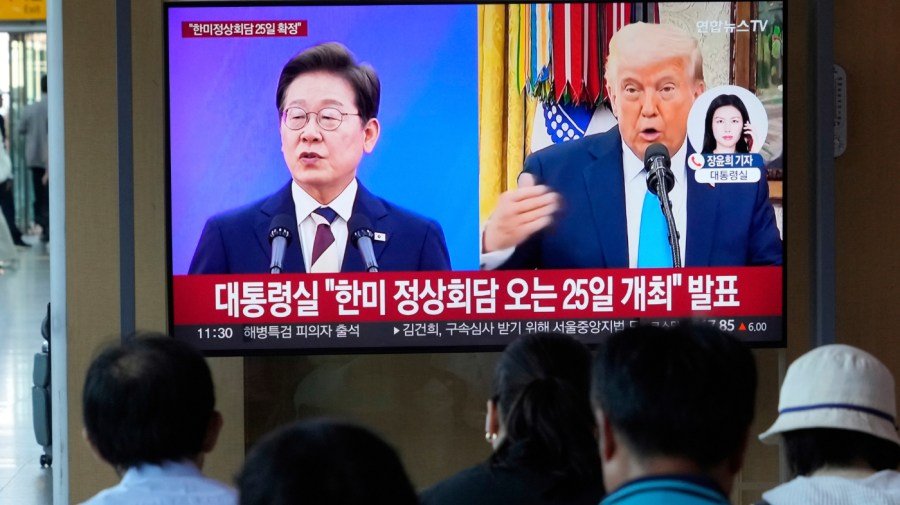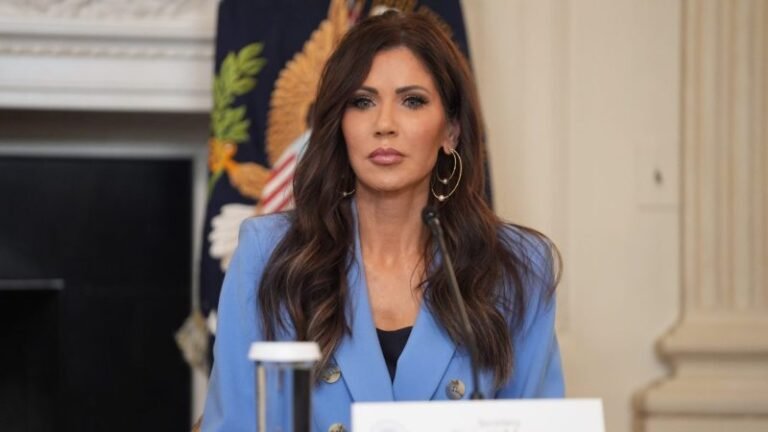
When you turn on the television in Europe, coverage of what happens in America jostles alongside domestic news. Europeans have a fairly good understanding not only of America’s geography but also its political history.
When you turn on the television in America, a different reality emerges. Not only is our coverage dominated by issues at home, but at times only a cursory attempt is made to ensure that the names of foreign leaders and places are pronounced correctly.
Now you may think these are the frustrations of a linguistic pedant, but when we fail to correctly understand the world in which we live, how can we possibly know how to react to it? In these turbulent times, we must provoke ourselves to understand those around us, so that we can make informed decisions on the foreign policy agendas of those we seek to elect.
A report conducted by the Pew Research Center in 2022 confirmed our diminishing international understanding. It found that only 48 percent of Americans could name the capital of Afghanistan (Kabul) and that only 41 percent could identify the flag of India, the world’s most populous country.
Of course, when you live in Kansas, the prospect of clicking your heels three times and readily straying across a country’s border isn’t a likely one. Even so, we need to ensure that our geographic isolation doesn’t place limits on what we can see and hear.
There is little doubt that a more informed understanding directly impacts our views on issues of the day. A report from May 2022 by the Pew Research Center found that “people who are aware that Ukraine is not a member of NATO are more likely to have a favorable view of NATO and more likely to say that the U.S. benefits a great deal from its membership.”
But when data suggests that younger generations are adopting an increasingly insular ideology, I worry that we are in danger of not understanding the full truth and history of problems, limiting effective geopolitical decision making.
Indeed, last year the Chicago Council on Global Affairs highlighted that Millennials and Gen Z “are far less convinced of the merits of active global engagement and are more selective about how the United States engages with the world.”
Although young Americans don’t buy into American exceptionalism, we need to better understand their questioning of active global engagement and why they are split on whether the benefits of internationalism outweigh the costs.
Unfortunately, I cannot but wonder about the consequences of a diet of domestic news and its implicit messaging — foreign news doesn’t matter.
As newsrooms have turned away from foreign affairs, so too have their audience. Unfortunately, this is not so much ideological but economical. With networks locked in a battle to provide news that sells, we find ourselves missing out on news that matters.
And with 24/7 news coverage placing great pressure on newsroom resources, it is of little surprise that the last 20 years have seen the shuttering of foreign news desks in all but our truly national publications.
Yet perhaps all is not lost. In a report for the Reuters Institute for the Study of Journalism at the University of Oxford, journalist and academic Richard Sambrook argues that “the falling costs of digital newsgathering technology, should be used to broaden the range of international reporting … and herald a new golden age for those interested in reporting the world”.
Capitalizing on increasingly diverse ways to collect stories from abroad is of course crucial, but so too is a realization that our international digest must start from a much earlier age.
When our students can talk about the New Deal but not the Marshall Plan, we need to pivot towards an education not restricted by borders or limited to the broad sweep currently conducted in AP World History classes.
For it was education, be it academic or experiential, that gave British war time leader Winston Churchill the foresight required to appreciate the type of foreign policy response required against the rising threat in Europe.
As Andrew Roberts in his book “Leadership in War” notes, “it was partly Churchill’s extremely dangerous time on the Afghan-Pakistan border in 1896 and 1897, and in the Sudan in 1898, which had brought him up close to militant Islamic fundamentalism, that allowed him to spot the fanatical nature of Nazism that so many of his fellow politicians missed in the 1930s.”
If we deny ourselves opportunities to hear and learn about what is happening abroad, we imperil our future at home.
And while reasoned arguments can certainly be made for a reexamination of how we treat the term isolationism, with Charles Kupchan urging us to “rehabilitate isolationism to restore a measured debate,” the complexities and nuances of these positions require us to have a detailed understanding of world history in the first place.
For without it, sensible positions are lost and we merely fall prey to a rhetoric that provokes more harm than good.
At a time when over half of Americans are concerned about their perception when abroad, it is imperative that our classrooms and newsrooms help expand our horizons, so that we don’t just know the names of foreign capitals, but understand why they are there.
James Coltella is a freelance writer and strategic communications professional. Originally from the United Kingdom, he currently lives in Oregon and works as a Bloomberg Harvard City Hall Fellow.






